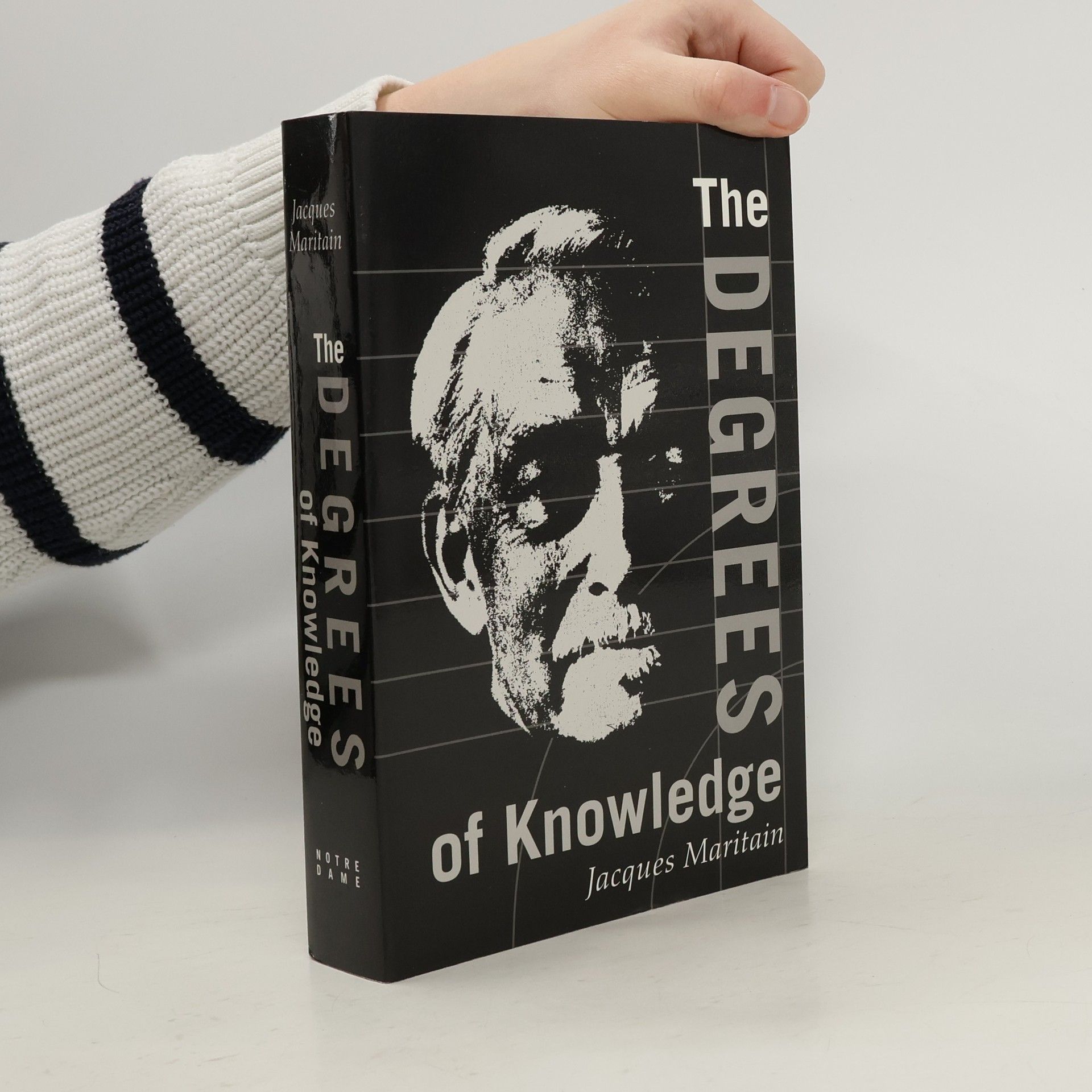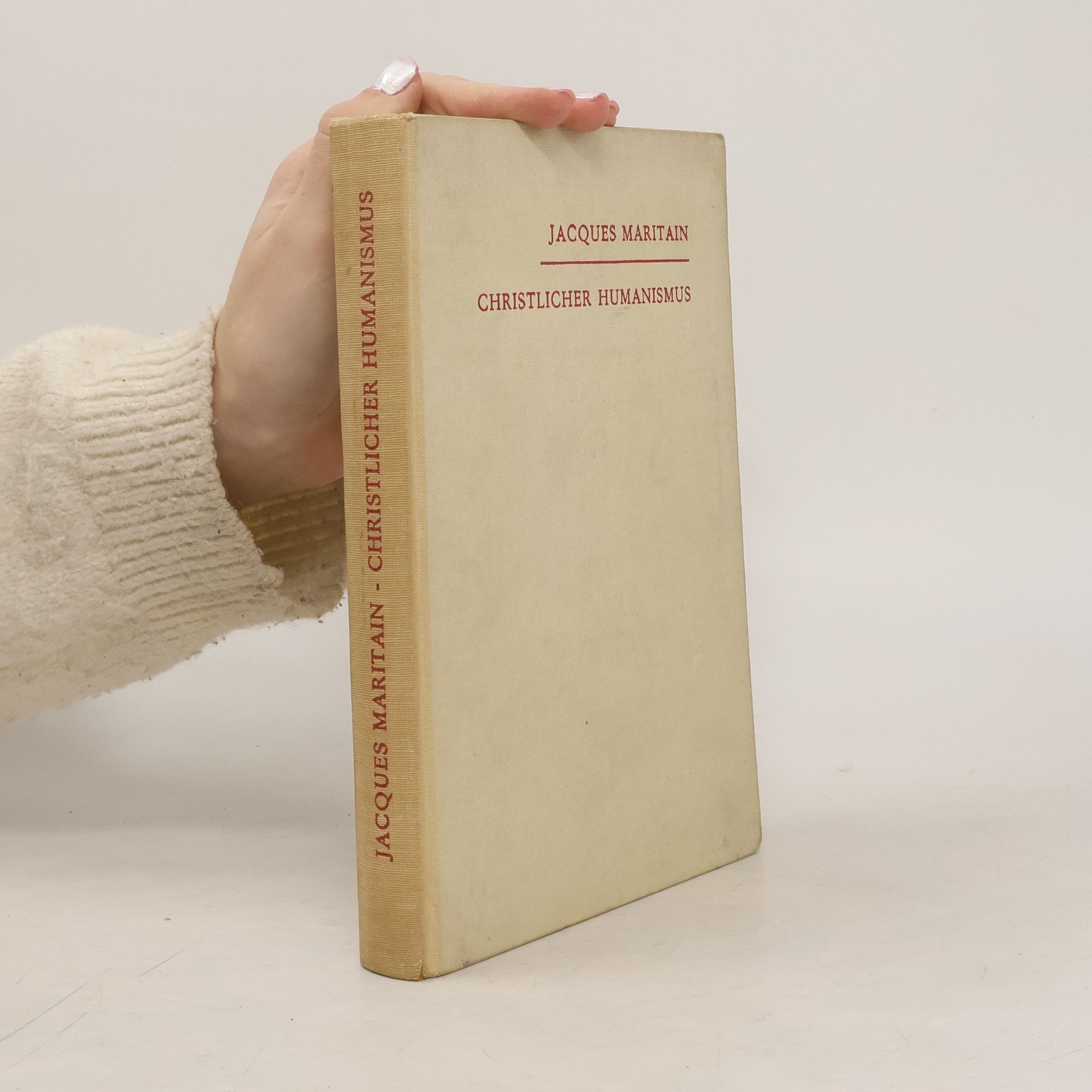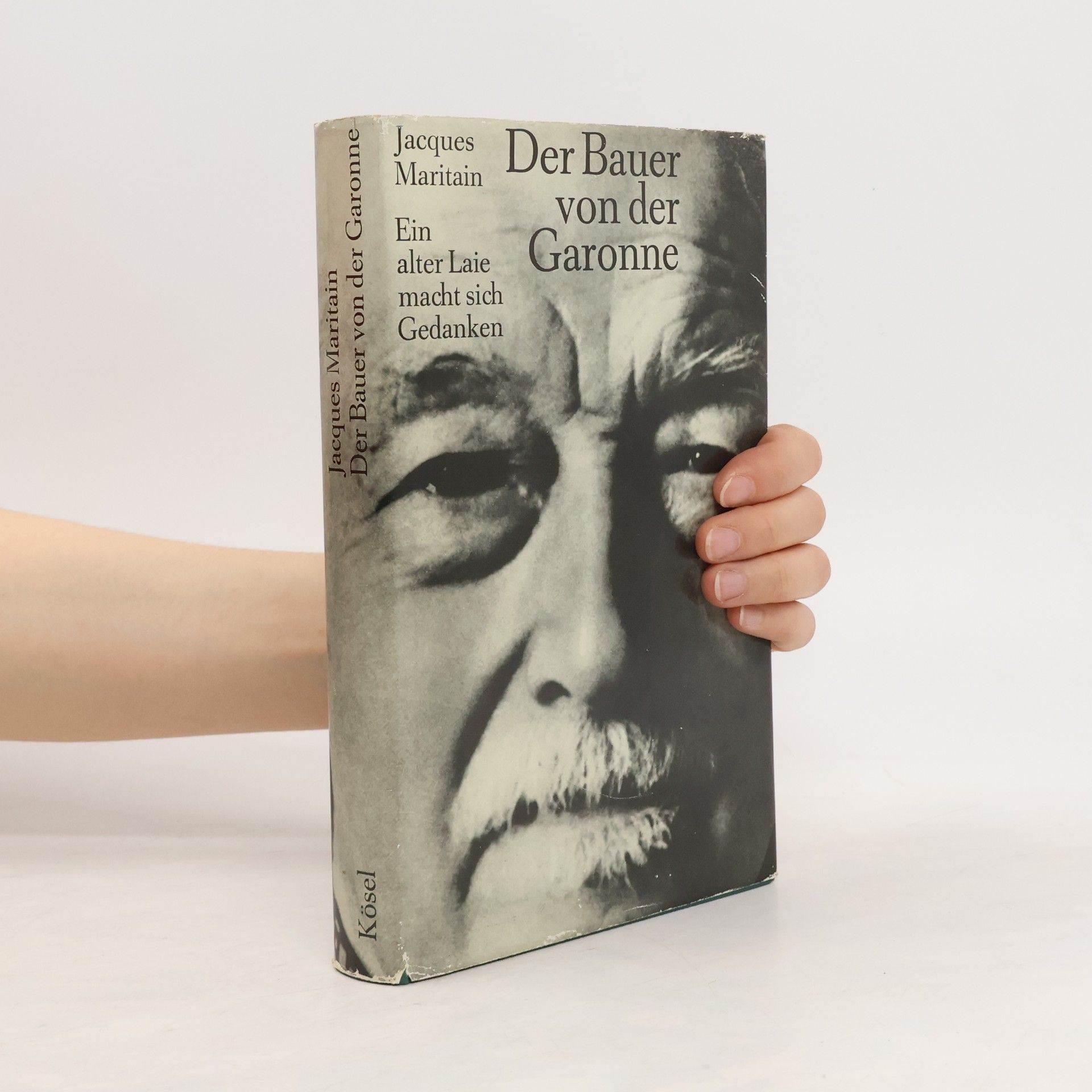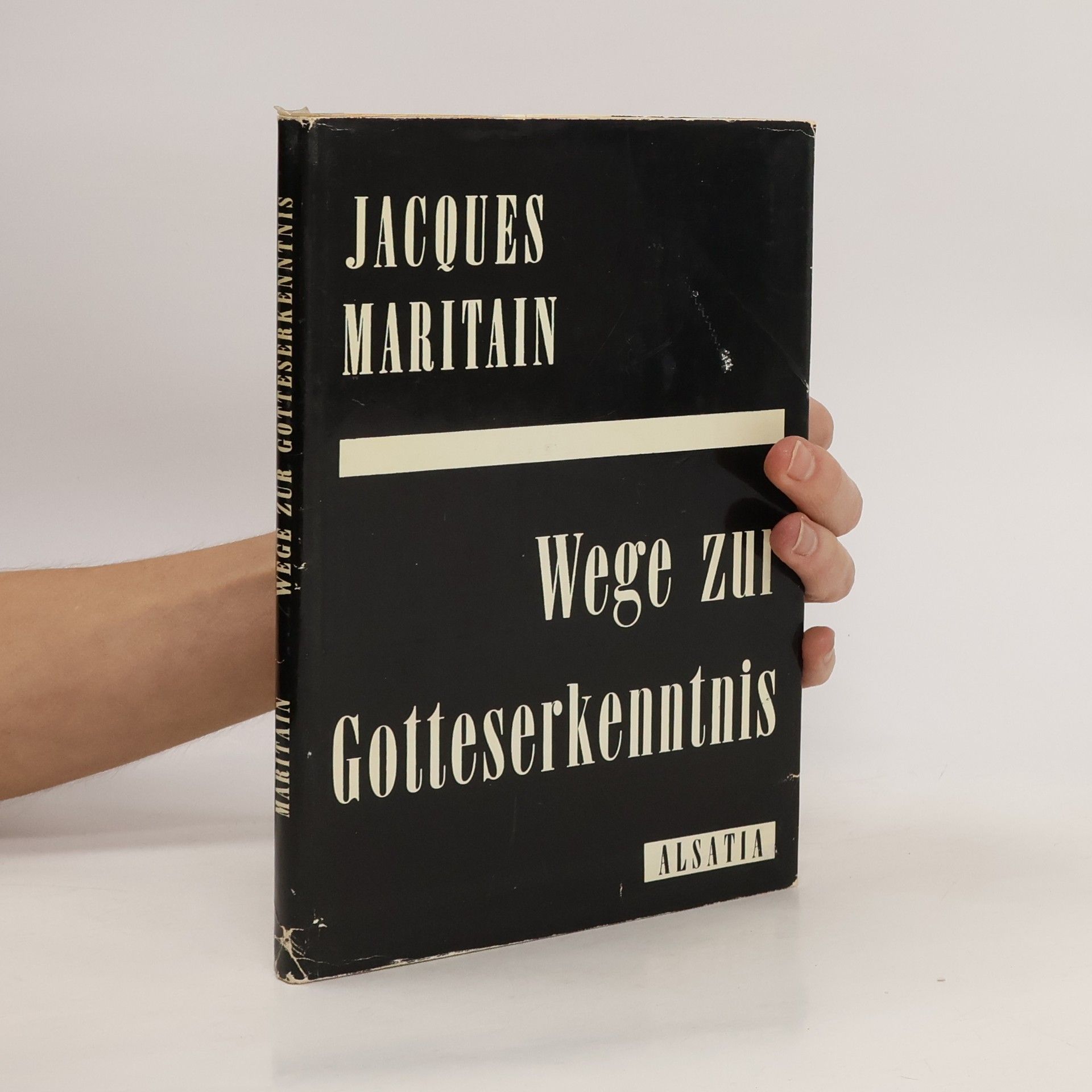Jacques Maritain Bücher
Jacques Maritain war eine herausragende Figur der katholischen intellektuellen Wiederbelebung und wendete die Prinzipien der Scholastik auf zeitgenössische Probleme an. Obwohl er die Metaphysik als zentral für die Zivilisation betrachtete und eine thomistische Position innehatte, setzte er sich vollständig mit den intellektuellen Strömungen seiner Zeit auseinander. Maritain formulierte einen widerstandsfähigen und lebendigen Thomismus, der in ganz Europa und Amerika Anklang fand. Seine späteren Schriften kritisierten Entwicklungen innerhalb der Kirche und betonten die Verteidigung traditioneller christlicher Lehren.







Der Bauer von der Garonne
ein alter laie macht sich gedanken
Von Bergson zu Thomas von Aquin
Acht abhandlungen über Metaphysik und Moral
Degrees of Knowledge
- 530 Seiten
- 19 Lesestunden
The exploration of knowledge in this work is divided into two distinct parts. The first part focuses on rational knowledge, examining the degrees of knowledge relevant to science and philosophy. The second part shifts to super-rational knowledge, delving into the complexities of religious faith and mysticism. Maritain emphasizes the varying kinds and orders of knowledge, highlighting how the nature of what is to be known and the degree of abstraction influence understanding.
The Twilight of Civilization;
- 88 Seiten
- 4 Lesestunden
Education at the Crossroads
- 174 Seiten
- 7 Lesestunden
Jacques Maritain's work emphasizes the fundamental purpose of education as serving humanity rather than societal constructs. He critiques prevalent misconceptions and explores the dynamics of education, advocating for a focus on personal and spiritual development. The book examines various knowledge spheres across educational stages and addresses the pressing challenges of post-war education, warning against the dangers of power overshadowing truth. Maritain's insights aim to realign educational goals with the intrinsic needs of individuals.
Víra v člověka
- 46 Seiten
- 2 Lesestunden
Je možné věřit v člověka? Prostá zkušenost vidí děsivé krutosti, jichž je člověk schopen, a tuto víru odmítá. Je však možné žít bez víry v člověka? Jak bychom bez ní byli schopni žít a pracovat pro druhé v rodině a ve společnosti? Těmito a podobnými otázkami se zabývají tři texty Jacqua Maritaina, které se zamýšlejí nad hodnotou člověka. Ateismus, který je předmětem prvního textu, je rozhodnutí vyloučit Boha z vlastního života. Ale co jiného pak může být cílem člověka, než on sám? Tolerance, o níž jde v druhém textu, je úsilí přiznat právo na existenci i člověku, jehož myšlení a jednání je poznamenáno zlem nepravdy a zloby. Víra v člověka je vlastním tématem třetího textu. Co je vlastně základem víry v člověka? - To všechno jsou otázky, kterým se nevyhne nikdo, kdo se snaží žít pro Boha a pro člověka uprostřed tohoto svízelného světa. Vyšlo v květnu 2008 v řadě Duchovní život.
Odpovědnost umělce
- 108 Seiten
- 4 Lesestunden
Poezie a umění tvořily důležitou součást života francouzského myslitele Jacquesa Maritaina. Jeho žena Raissa byla básnířka, měl mnoho přátel mezi umělci a básníky (mj. Ch. Péguy, G. Rouault, M. Chagall aj.). Rozsáhlou a originální část svého filosofického díla věnoval teoretickým otázkám umění. Odpovědnost umělce (1961) je poslední Maritainovou větší publikací z této oblasti; jejím základem byly přednášky na universitě v Princetonu. Po stránce obsahové se v knize stýkají dvě samostatné disciplíny, filosofická estetika a filosofická etika. Maritain ovšem neřeší obecné problémy estetiky nebo obecné problémy etiky. Vychází ze svébytných pojetí teorie umění a teorie mravnosti a na tomto základě pojmenovává vzájemný vztah obou oblastí.


